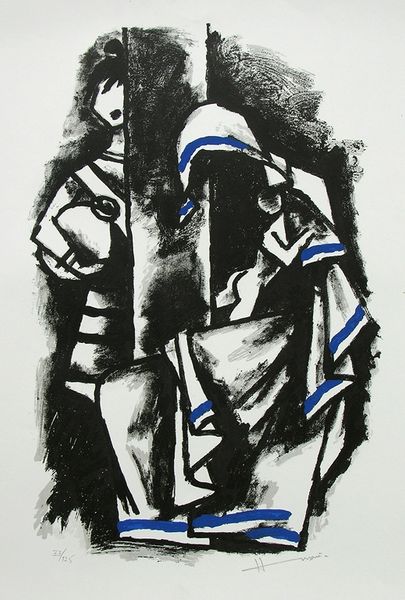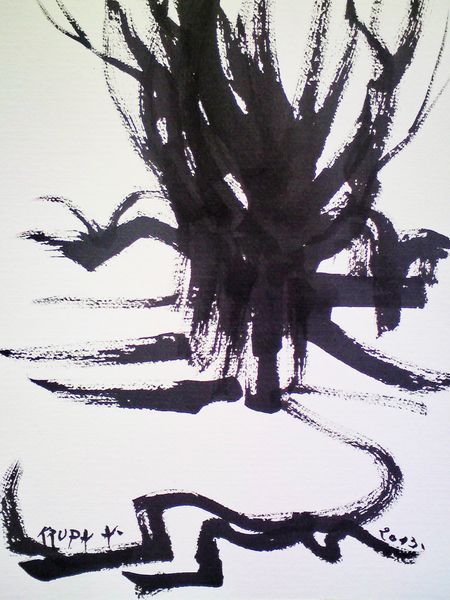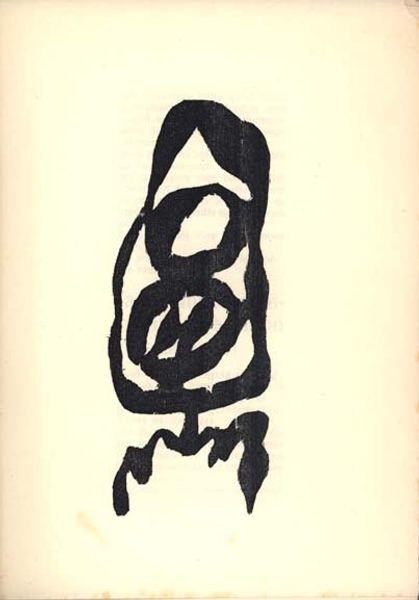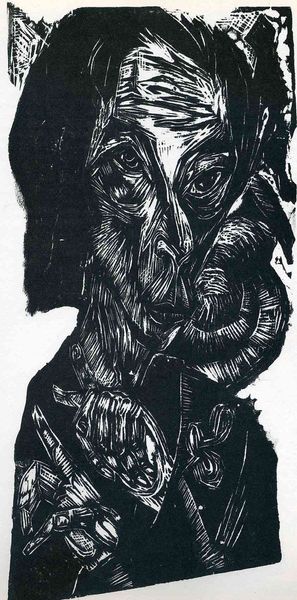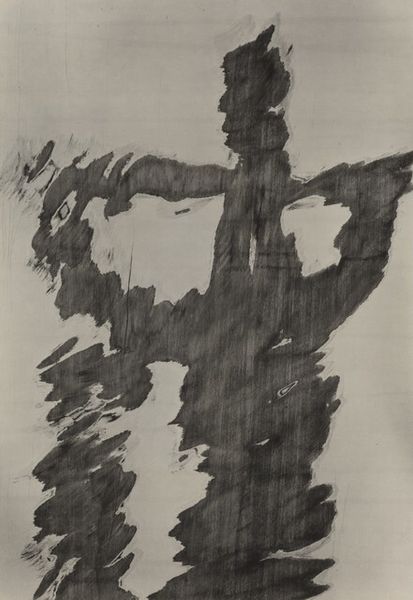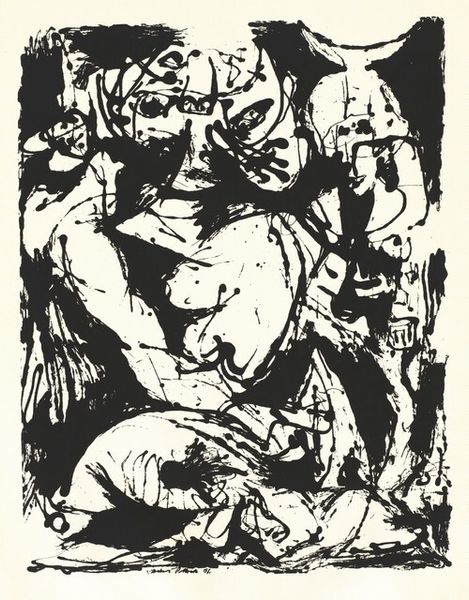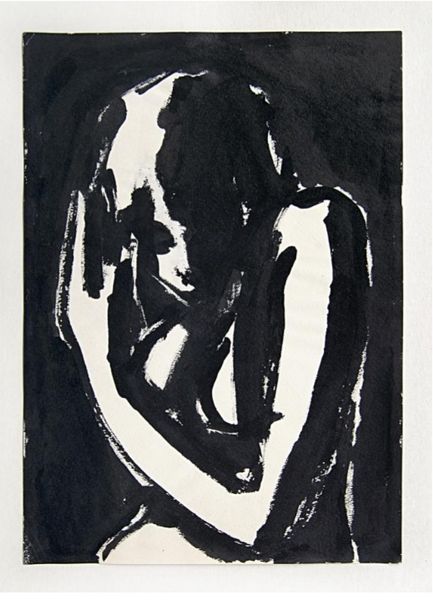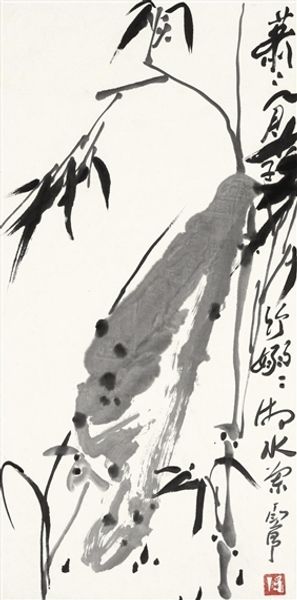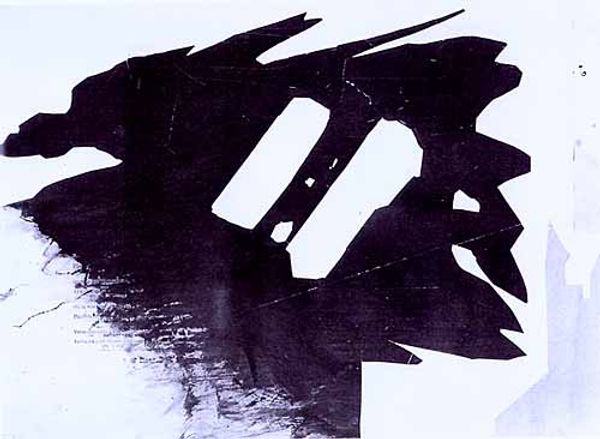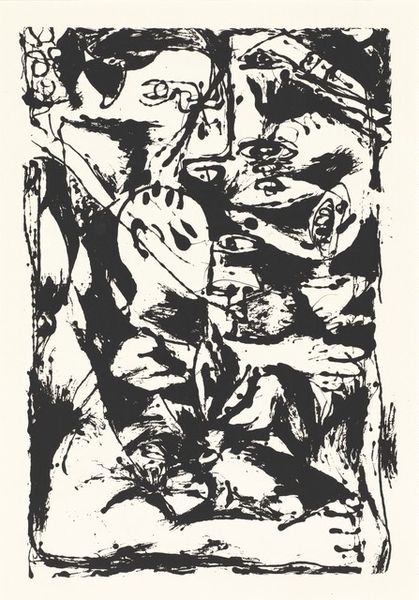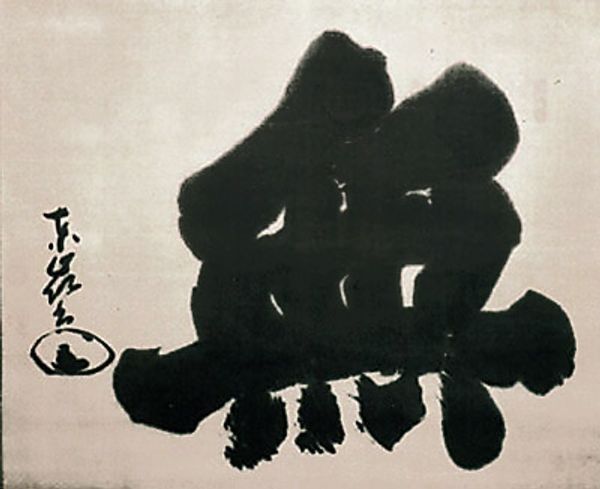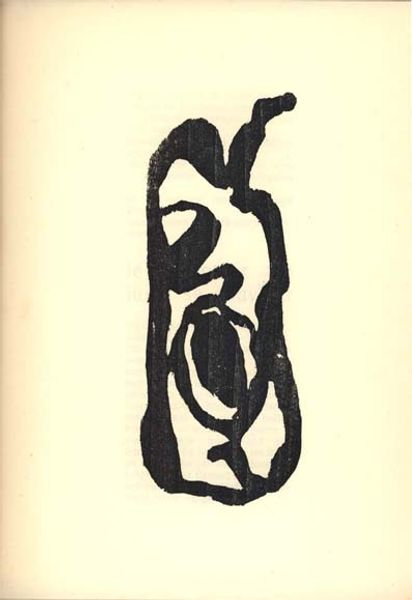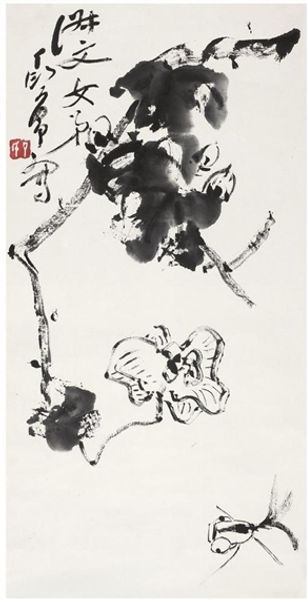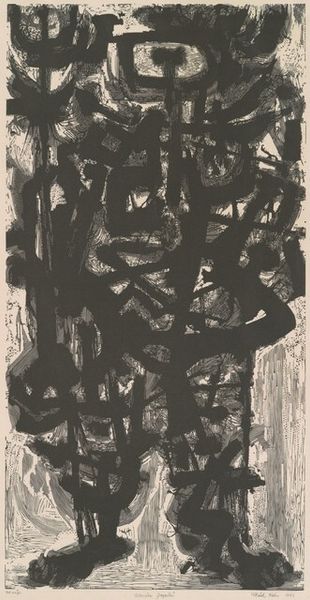
drawing, ink
#
abstract-expressionism
#
drawing
#
ink line art
#
ink
#
abstraction
#
line
Copyright: Jean Degottex,Fair Use
Editor: This is Jean Degottex’s “Wave,” created in 1954 using ink. The stark contrast of the thick black lines against the white space makes it feel really powerful, almost like a snapshot of raw energy. How do you interpret this work? Curator: The "Wave," a work in ink, invites us to consider the post-war cultural landscape. We must reflect on the intersection between artistic expression and societal reconstruction. How might Degottex, through abstraction, be processing the trauma and seeking new modes of communication? It's interesting to see that despite its minimalist approach, the work engages with a moment of recovery and change. Do you see any echoes of Eastern calligraphy in its form and execution? Editor: Yes, now that you mention it, I do see the influence of calligraphy in the brushstrokes. It reminds me of how different cultures try to depict nature through art, either representational or abstract. Curator: Exactly. In a moment characterized by shifts in power dynamics, it encourages a dialogue. Considering abstract expressionism, the piece is very self-aware. Editor: This makes me think about how many artists were experimenting with different styles and cultural references after the war, looking for new ways to express themselves. Thanks for opening my eyes to a new perspective. Curator: Of course. Art reflects not only what the artist sees, but what the artist hopes the world can become. Examining the intentions with which these art pieces were created allows us to view the art on a much deeper level.
Comments
No comments
Be the first to comment and join the conversation on the ultimate creative platform.
